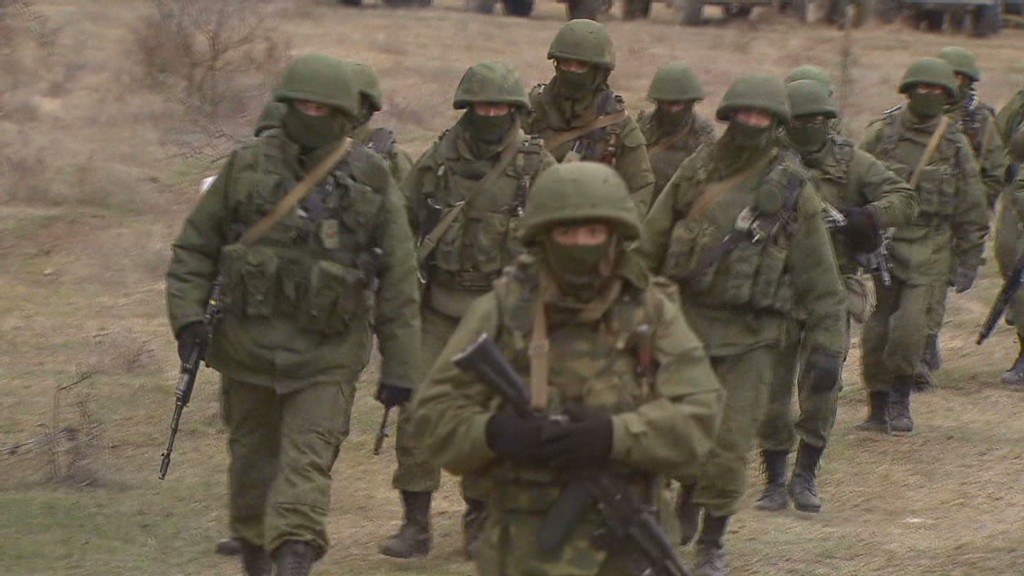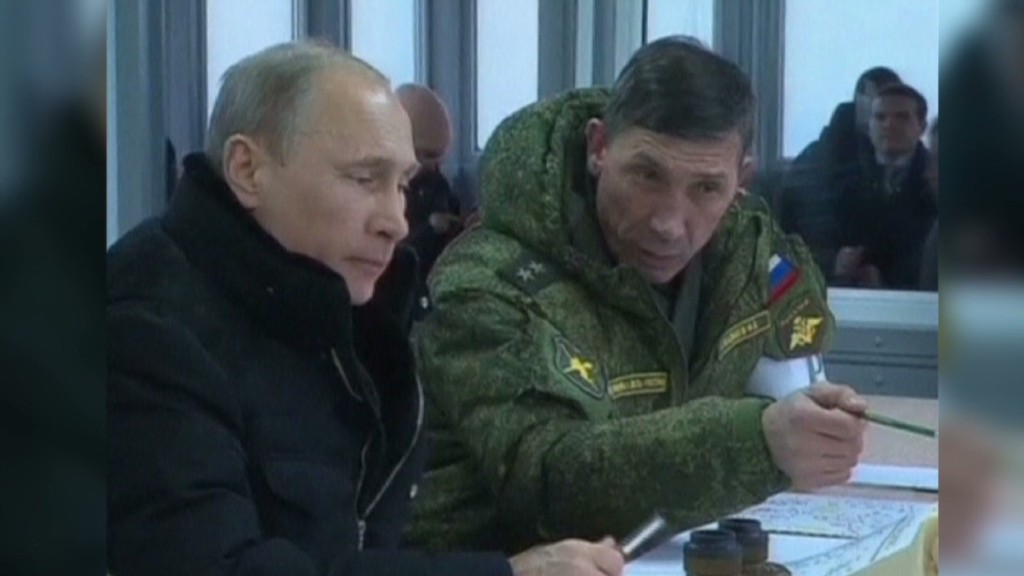
Russia and the United States have levers to pull in their diplomatic showdown over Ukraine, but the amount of U.S. debt held by Russia won't be one of them.
For one, Russia owns a fairly modest amount of U.S. Treasuries -- and that figure is shrinking. So even if Russia dumped its holdings, it wouldn't have much of an impact.
Figures released Tuesday by the U.S. Treasury Department show Russia owned $132 billion worth of Treasuries at the end of January, down 5% from December.
That might seem like a lot, but it's just a little more than 10% of what China or Japan hold -- more than $1 trillion each. And it places it just behind tiny Luxembourg, which owns $135 billion.
Related: Defiant Russia shrugs off sanctions
Furthermore, even if the U.S. imposes further sanctions on Russia, it might have trouble freezing its Treasury holdings. That's because Russia might have just moved a large chunk out of an account at the U.S. Federal Reserve.
A report released by the Fed last week showed that the total amount of Treasuries held by the U.S. central bank for foreign governments fell by more than $100 billion, marking the biggest weekly decline on record.
The Fed does not break out who it's holding the Treasuries for, but the amount of the decline, combined with earlier data on Russia's holdings, led bond traders and experts to assume Russia had decided to move its holdings instead of selling.
Related: Russians spend billions on European deals
"It's speculation but it appears that the Russians decided to move some Treasuries to some place a little farther removed from Treasury's reach," said Lou Crandall at Wrightson ICAP. "If that much had been dumped in outright sales, it would have been noticed by the market. So the odds are that they were changing custody of the holdings."

But Crandall said that even if Russia did decide to liquidate, rather than simply move, its Treasuries, it wouldn't be enough to rattle a market that includes foreign holdings of $5.8 trillion, and the Fed's $2.3 trillion.
"There would be an initial impact while people try to figure out what was happening," said Crandall. "But once it became clear, given that the limited magnitude of the Russian holdings, even concentrated selling would have only transitory impact."


